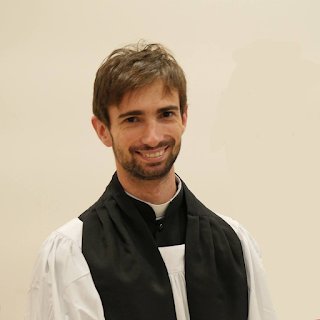Reading
John 13:1-15
1 It was just before the Passover Festival. Jesus knew that the hour had come for him to leave this world and go to the Father. Having loved his own who were in the world, he loved them to the end.
2 The evening meal was in progress, and the devil had already prompted Judas, the son of Simon Iscariot, to betray Jesus. 3 Jesus knew that the Father had put all things under his power, and that he had come from God and was returning to God; 4 so he got up from the meal, took off his outer clothing, and wrapped a towel around his waist. 5 After that, he poured water into a basin and began to wash his disciples’ feet, drying them with the towel that was wrapped around him.
6 He came to Simon Peter, who said to him, “Lord, are you going to wash my feet?”
7 Jesus replied, “You do not realize now what I am doing, but later you will understand.”
8 “No,” said Peter, “you shall never wash my feet.”
Jesus answered, “Unless I wash you, you have no part with me.”
9 “Then, Lord,” Simon Peter replied, “not just my feet but my hands and my head as well!”
10 Jesus answered, “Those who have had a bath need only to wash their feet; their whole body is clean. And you are clean, though not every one of you.” 11 For he knew who was going to betray him, and that was why he said not every one was clean.
12 When he had finished washing their feet, he put on his clothes and returned to his place. “Do you understand what I have done for you?” he asked them. 13 “You call me ‘Teacher’ and ‘Lord,’ and rightly so, for that is what I am. 14 Now that I, your Lord and Teacher, have washed your feet, you also should wash one another’s feet. 15 I have set you an example that you should do as I have done for you.
Comment
Jesus and the disciples are gathered to share supper before the eve of the Passover. It is therefore an ordinary meal taken in the late afternoon of the Thursday preceding the Festival. In fact, there is no ritual element, but Jesus carries out a strongly symbolic action by washing the feet of his disciples.
It is not a question of a religious order, to be practiced once a year, but of an example (v. 15) of extreme humility in the service of the brothers; it is the demonstration that Jesus loves us perfectly, right up to the end (Gr. ein telos). We can consider this moment the beginning of the "becoming Easter" of Jesus himself, one day after his crucifixion. John specifies in fact that "the hour had come for him to leave this world and go to the Father" (v. 1), where the Greek verb metabaino (to change place, to move away from) gives the phrase an allusion to the passage from death to life. Also the verb with which it is indicated to put down the garments of Jesus (Gr. Tithemi) recalls the offering of life.
The washing of the feet was a sign of hospitality in the Jewish world and through this gesture Jesus fully welcomes the disciples into a relationship of salvation, expressed by having part with him (v. 8). He also asks the disciples to become his imitators, showing themselves humble to one another. The action of washing guests' feet was in fact the responsibility of the servants; only rarely was it performed among peers, as a sign of great love.
The disciples, who until a short time before discussed who was the greatest (Lk 22:24) remain astonished - starting with Peter - at the lowering of Jesus to the point of showing himself to them as the one who serves. Action is also a symbol of the spiritual washing that the Passion of Christ will carry out for souls; of that gift of love which now cannot be understood (v. 7), but whose meaning will be disclosed by the Risen One when he comes to break the bread again for his (Lk 24:35).
The atoning sacrifice of the Cross will bring about full justification by grace, however, continuous sanctification in humility and righteousness of life will be necessary. With his example, Jesus teaches us to receive one another, with that love which is agape, a gift, capable of making us go beyond our individuality, realizing that transformation, that "passage", which takes us out of the limits of the human condition.
Prayer
Purify us, o Lord, with your grace; so that we can participate in full communion with you, in the solicitous service of our brothers. Amen.
- Rev. Dr. Luca

